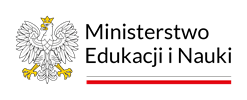O czasopiśmie
ISSN 0867-8308 (druk) • ISSN 2391-6834 (online)
Cele i zakres czasopisma
„Logos i Ethos” jest naukowym recenzowanym półrocznikiem wydawanym od 1991 roku przez Wydział Filozoficzny Uniwersytetu Papieskiego Jana Pawła II w Krakowie. Czasopismo powstało w celu upowszechniania krajowych oraz międzynarodowych badań w zakresie szeroko rozumianej filozofii. „Logos i Ethos” publikuje, artykuły naukowe, przekłady i komentarze, recenzje i sprawozdania, wywiady. Prowadzimy nabór tekstów w trybie ciągłym. Nie narzucamy tematów przewodnich dla poszczególnych numerów.
Opłaty
Czasopismo nie pobiera od autorów żadnych opłat na żadnym etapie procesu zgłoszenia ani publikacji.
Proces recenzji
Artykuły przesłane do publikacji podlegają ocenie dwóch niezależnych recenzentów spoza jednostki naukowej autora według procedury, w której autorzy i recenzenci nie znają swoich tożsamości (podwójnie anonimowy proces recenzji). Kryterium recenzji poza metodologiczną i merytoryczną poprawnością jest oryginalność koncepcji i wkład w rozwój badań naukowych. Zgłoszenia tekstów niecytowalnych podlegają ocenie zespołu redakcyjnego.
Polityka otwartego dostępu
Czasopismo jest publikowane w trybie otwartego dostępu (natychmiastowy, darmowy dostęp do pełnych tekstów dla każdego użytkownika) na licencji Creative Commons Uznanie autorstwa 4.0 Międzynarodowe. Politykę otwartości wydawcy można sprawdzić w serwisie Open policy finder (Jisc).
Indeksowanie czasopisma w bazach danych
Logos i Ethos jest indeksowane w międzynarodowych bazach danych:
Etyka czasopisma i nadużycia
Aby przeciwdziałać przypadkom „ghostwriting” i „guest authorship”, redakcja wymaga ujawnienia wkładu poszczególnych autorów w powstanie publikacji, w szczególności autorstwa koncepcji, założeń, metod i poszczególnych fragmentów tekstu. Konieczne jest również informowanie redakcji o źródłach finansowania publikacji. Ponieważ „ghostwriting” i „guest authorship” stanowią przejawy nierzetelności naukowej, autorzy artykułów proszeni są o składanie w redakcji deklaracji dotyczących wkładu merytorycznego i finansowego podmiotów przyczyniających się do powstania publikacji. W przypadku wykrycia nadużycia lub nierzetelności po stronie autorów lub recenzentów zespół redakcyjny czasopisma postępuje zgodnie z zasadami etyki publikacyjnej i stosuje procedury ujęte w diagramach Committee on Publication Ethics (COPE).
Przeciwdziałanie plagiatom
Każde zgłoszenie przed procesem recenzji poddawane jest kontroli oryginalności przy użyciu Crossref Similarity Check, które jest obsługiwane przez iThenticate. Manuskrypty, w których stwierdzono plagiat, są odrzucane.
Archiwizowanie
Czasopismo korzysta z systemów LOCKSS i CLOCKSS, które umożliwiają archiwizowanie wybranych czasopism publikowanych w internecie. Każdy zarchiwizowany artykuł jest wielokrotnie sprawdzany, a jego kopia przywracana w przypadku wystąpienia błędów lub nieciągłości danych.
Finansowanie

Czasopismo dofinansowane ze środków Ministerstwa Edukacji i Nauki w ramach programu „Rozwój czasopism naukowych” na podstawie umowy nr RCN/SP/0598/2021/1 z dnia 20 grudnia 2022. Okres realizacji projektu: 1 listopada 2022–7 maja 2024. Wartość dofinansowania 34 000,00 PLN.
Celem projektu jest wsparcie redakcji czasopisma „Logos i Ethos” w realizacji strategii jego rozwoju, obejmującej działania zmierzające do podniesienia poziomu praktyk wydawniczych i edytorskich, zwiększenia wpływu czasopisma na rozwój nauki oraz utrzymania się czasopisma w międzynarodowym obiegu naukowym.
